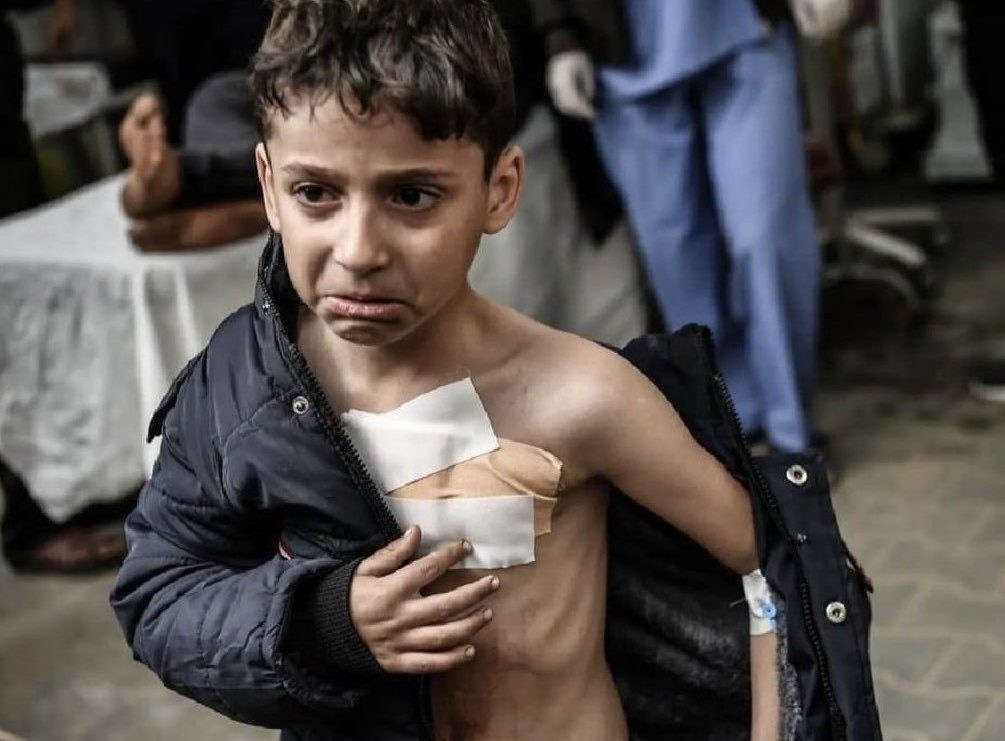In just one week, there has been a 50% increase in the incidence of diarrhoea among children, while 90% of children under the age of two are now experiencing ‘severe food poverty’.
The Gaza Strip is in the midst of a crisis affecting its youngest population the most.
Now into its fourteenth week, the Israeli assault on Gaza and the occupation intentionally starving Palestinians has led to an alarming increase in diseases and a severe decline in nutrition, putting the lives of over 1.1 million children at grave risk, according to UNICEF.
Thousands of children have been killed by Israel, and the living conditions continue to worsen for those who have survived. There was a 50% increase in cases of diarrhoea in children in just one week.
The number jumped from 48,000 to 71,000 in just one week from 17 December, a 2000% increase from before the Israeli attack.
Nutrition is also critically endangered. According to a UNICEF survey, about 90% of children under two are now consuming only two or fewer food groups, mainly grains and milk, indicating severe food poverty.
The diet of pregnant and breastfeeding women is also alarmingly inadequate, due to the Israeli siege.
Catherine Russell, UNICEF’s Executive Director, said, “Children in Gaza are caught in a worsening nightmare. They face death and injury in the fighting, and their survival is threatened by rising diseases and a lack of food and water. We must protect all children and civilians from violence and ensure they have access to essential services and supplies.”
Malnutrition and disease are interlinked, creating a deadly cycle. Malnourished children are more prone to infections like acute diarrhoea, which further deteriorates their health and significantly raises the risk of death.
The Israeli assault has intentionally severely damaged critical infrastructure, including water, sanitation, and health systems, and has impeded the treatment of severe malnutrition.
Displaced families are struggling with hygiene, often with no access to safe water or sanitation. Hospitals, overwhelmed with casualties from the relentless airstrikes by the occupation, are unable to properly address disease outbreaks.
“We are working tirelessly to provide life-saving aid to Gaza’s children, but we need better and safer access. The world must act now to stop the violence and end the suffering of children,” Russel said.
Weaponising starvation
South Africa has filed a case against Israel at the International Court of Justice (ICJ), accusing Israel of genocidal acts against Palestinians in Gaza.
The allegations include killing Palestinians in Gaza, causing serious bodily and mental harm, and creating conditions calculated to bring about their physical destruction. South African President Cyril Ramaphosa has likened Israel’s policies in Gaza and the West Bank to his country’s past apartheid regime.
Human Rights Watch (HRW) has also accused Israel of using starvation as a weapon of war in Gaza, stating that Israel is deliberately depriving Palestinians of access to food, water, and other necessities. This act is seen as a war crime. According to HRW, Israeli policies indicate an intent to starve civilians as a method of warfare, citing statements from Israeli officials and evidence from satellite imagery.
The crisis in Gaza has been exacerbated by the destruction of civilian infrastructure, including housing units, hospitals, schools, and vital services like water and electricity networks.
The Israeli military’s attacks have also severely affected Gaza’s healthcare sector, worsening the situation for the population already struggling with the ramifications of starvation.







